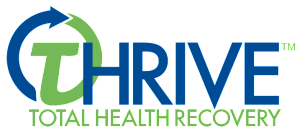Trauma affects every person differently.
Countless variables impact how a person handles a traumatic incident. One of the most significant variables is gender. Males and females are often raised very differently, causing a disparity between how they respond to — and cope — with painful experiences. Males may be discouraged early on from displaying emotions related to pain or sadness, while females may be stereotypically “expected” to show such emotions. Consequently, they may be offered less support to build up resilience or mechanisms to cope on their own. In such situations, they may turn to substances to help them get through.
Girls and women have historically been the victims of higher rates of domestic abuse and traumas, particularly when it comes to trauma related to sexual harassment, assault, or rape. According to the National Domestic Violence Hotline, almost one out of every five women have experienced rape. That is 18.3% compared to 1.4% reported by males. Meanwhile, the hotline reported, “81% of females who, experienced rape, stalking, or physical violence by an intimate partner reported significant short or long-term impacts such as post-traumatic stress disorder symptoms and injury.” Note, that statistic only captures those who “reported” such impacts and may not capture the full extent of the mental health damages done. Many survivors choose to suppress their feelings or to underreport, fearing stigma, or further trauma from victim-blamers.

 The progress in women’s addiction treatment has made it clear that trauma plays a significant role in female dependence.
The progress in women’s addiction treatment has made it clear that trauma plays a significant role in female dependence.
The National Institute on Drug Abuse estimates that over 80% of women seeking treatment for substance addiction have a history of trauma. As with the earlier statistic, this number only reflects the percentage of sufferers who have sought treatment and reported their histories. It may be just the tip of the iceberg, with countless millions who’ve been reluctant to share their experiences and seek help.
When any person experiences a traumatic event, it leaves deep psychological traces. Many individuals realize the harmful effects but try to bury them. Others, especially children, may not be aware that trauma or abuse has left them experiencing anxiety or other disorders through no fault of their own. This can be especially true in cases where a young person was abused by someone they know, such as a family member they trusted.
Traumas can readily lead to post-traumatic stress and other disorders, creating a wide range of problems.
Some females might experience flashbacks or want to avoid any reminder of an event. Others may become indifferent or hypervigilant, both of which can lead to sufferers turning to substances to either feel “something” or feel “nothing,” depending on the addiction. It is never easy to confront trauma and addiction. However, it is only through such professionally assisted confrontations that girls and women can overcome issues and pave the way for a happier future.
Gulf Breeze Recovery’s program is based on addressing what’s underlying the addiction rather than solely focusing on addictive behaviors. To properly treat the co-occurring disorder and complexities of trauma, Gulf Breeze Recovery offers a “track” called Traumacare. This track places the underlying cause (trauma) at the forefront in a discrete manner to help people experience happiness and fulfillment in recovery.
If you or someone you care about, has an ongoing history of trauma-related alcohol or substance use and/or relapse, contact Gulf Breeze Recovery or call: 833.551.2356 to speak to an addiction expert to learn more about their residential program, out-patient program, and intensive out-patient program, and which of these can best fit your individual needs. These programs have helped many people overcome their addiction and embrace a new happy, healthy, substance-free lifestyle.
We help people not just to survive, but to THRIVE!
About Gulf Breeze Recovery:
Gulf Breeze Recovery, unlike other treatment centers in Florida, is a non 12 step holistic drug and alcohol rehab that is changing the future of addiction treatment with their THRIVE® (Total Health Recovery) program focused on overcoming chronic relapse.
Gulf Breeze Recovery’s THRIVE® program is a non 12-step approach designed for those who are looking for a drug and alcohol treatment program to produce a different and positive result.
This non-12 step program allows you to drive beyond your addictions and promotes a new outlook on life.
We are licensed by the Florida Department of Children and Families, and our last audit scored 99.7! Also, we are gold certified by the Joint Commission.
Want to read more about Gulf Breeze Recovery’s non 12 step, holistic drug and alcohol rehab? Check out some of our latest posts:
Researchers Identify Role of Key Brain Signaling Protein in Alcohol Use Disorder
January 29, 2021
College Students Who Returned Home Due to Pandemic Drinking Less
January 29, 2021
Overdose Deaths Soar in the Midst of a Pandemic
January 27, 2021
Alcoholism Today in Seniors and Younger Generations
January 20, 2021
End Chronic Relapse and Start a New Life!
At Gulf Breeze Recovery we don’t want you to have just a great recovery, we want you to have a great life!


 The progress in women’s addiction treatment has made it clear that trauma plays a significant role in female dependence.
The progress in women’s addiction treatment has made it clear that trauma plays a significant role in female dependence.






